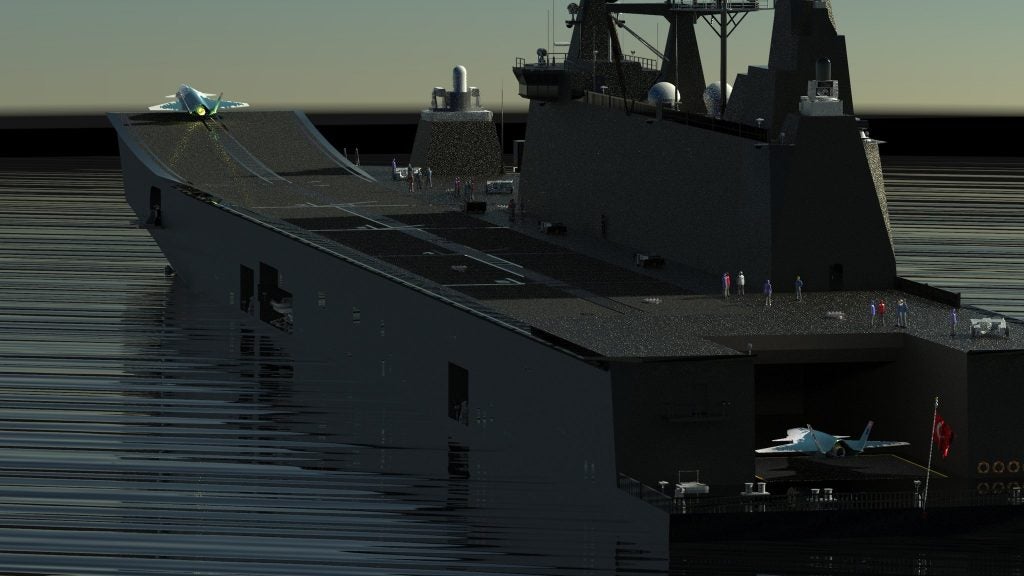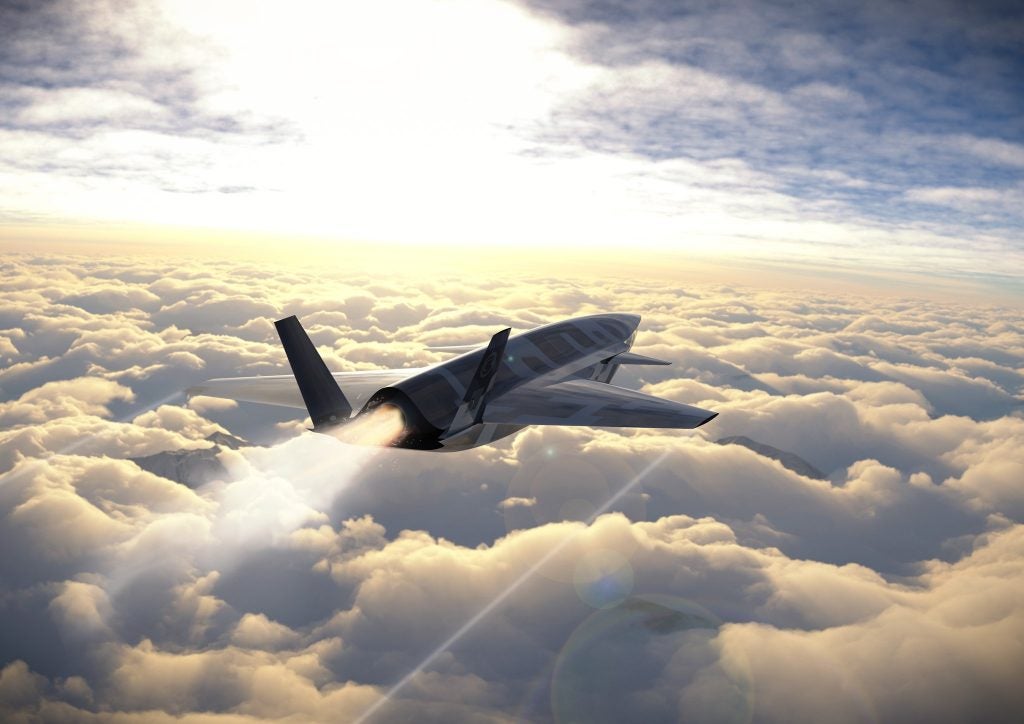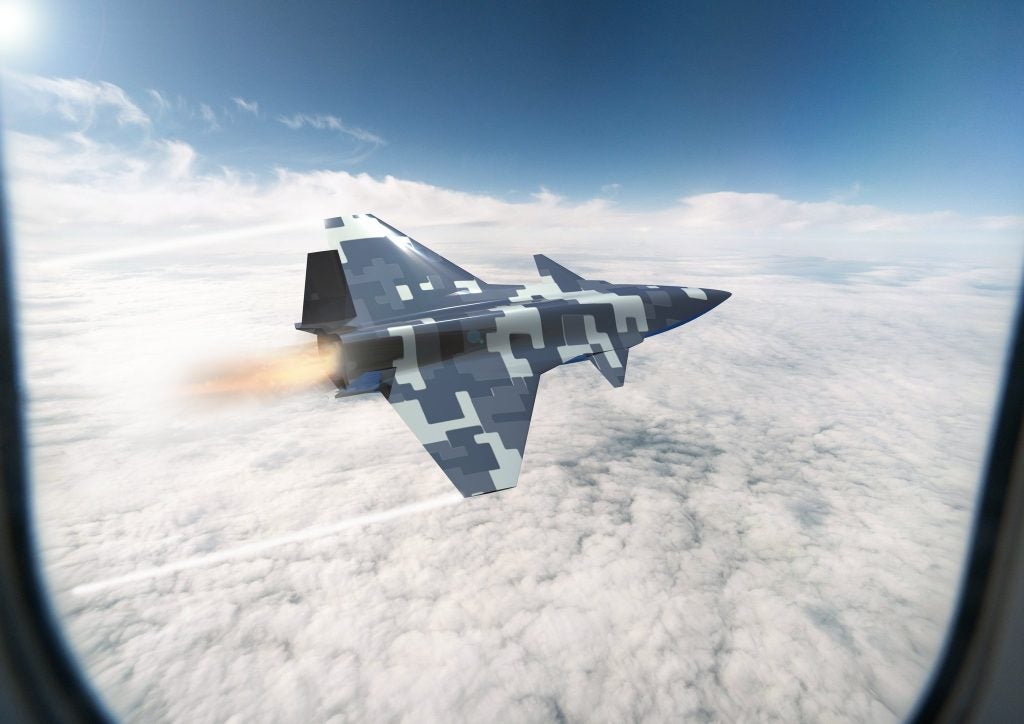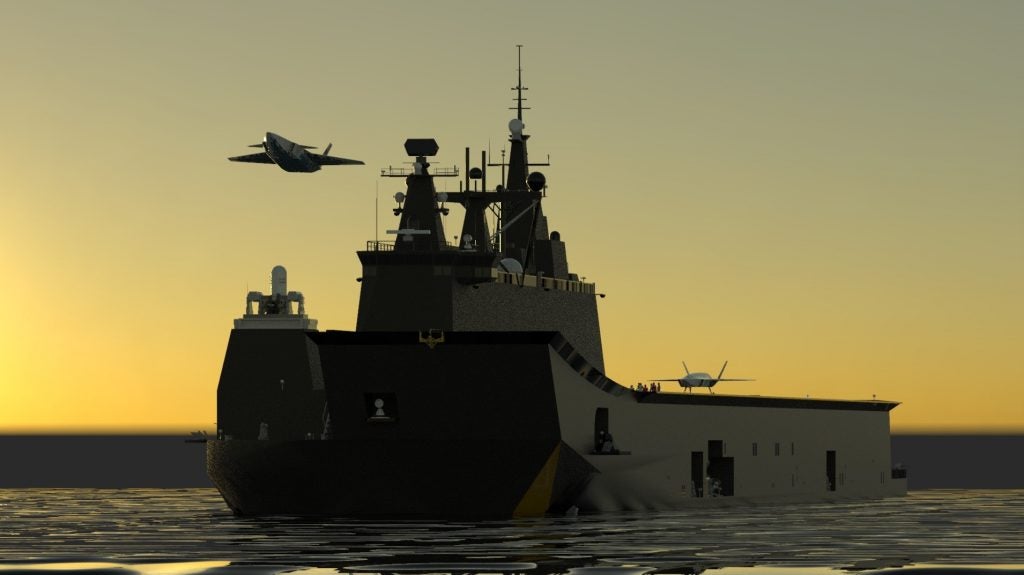Baykar Unveils New Carrier Capable Unmanned Combat Aircraft Concept
Baykar today released the first concept renders of its MIUS (Muharip İnsansız Uçak Sistemi, or Unmanned Combat Air System).
The renders show off the jet-powered MIUS’ profile. While the fuselage shape resembles Boeing Australia’s Loyal Wingman, the MIUS features canards and rearwards-placed trapezoidal wings, instead of the Australian drone’s lambda wings. Interestingly, two of the renders released show the MIUS operating off of the TCG Anadolu amphibious assault ship, showing Baykar’s intent for the MIUS to be capable of carrier operations, as well as hinting at a size comparable to the F-35Bs the Turkish Navy intended to procure for use on the Anadolu prior to Turkey’s expulsion from the program in 2019.

Baykar Chief Technology Officer Selcuk Baykaratar subsequently uploaded a video from Baykar’s Istanbul facility, providing a brief overview of what the drone manufacturer aims to accomplish with the MIUS. According to Selcuk, the low-observable MIUS will be capable of supersonic flight (albeit with a high subsonic cruise speed) while carrying a payload of up to 1.5 tons of various air-to-air and air-to-ground munitions, inclusive of cruise missiles. The MIUS will feature an internal weapons bay for stealthy carriage of munitions, in addition to external hardpoints for when low observability is not a priority.

The autonomous MIUS is to be programmed with artificial intelligence capable of “aggressive” maneuvers in within-visual-range combat. The artificial intelligence will also allow multiple MIUS drones to work together with each other or with manned aircraft, through what Selcuk described as a “smart squadron” function.

The MIUS will be capable of takeoff from the Anadolu’s ski jump without requiring a catapult, and will use arrestor wires to land back aboard. Selcuk added that the first flight of a MIUS prototype is planned for 2023, coinciding with the 100th anniversary of the founding of the Republic of Turkey.
Selcuk said that the company has been “dreaming” of executing this project for 12 years. Like the company’s previous drone projects, he stated that development of the MIUS to date has been funded purely by Baykar’s own resources and funding. According to him, the forward-looking nature of Baykar’s projects was the key to their success to date, saying that “we must prepare today for the races of the future”.
Baykar’s ability to meet their ambitious self-imposed schedule is also bolstered by its Akinci’s steady progress towards mass production and formal adoption by the Turkish Air Force. The company recently announced that a 9 July test flight saw an Akinci fly with a 1.36 ton payload for 13 hours and 24 minutes before landing with the payload still on board, the day after another test flight where the Akinci set a new altitude record for Turkish-made aircraft of 38,039 feet (11,594 meters) on a flight lasting 25 hours and 46 minutes. According to Baykar, preproduction Akincis have completed 879 sorties as of July 9, with 347 hours and 28 minutes spent airborne.

